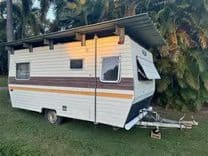The Overlooked Market: How Police Impound Auctions Are Opening Doors for Flatbed Truck Buyers
Most people associate police impound auctions with seized sedans or unclaimed motorcycles. But behind the scenes, these auctions often include something far more valuable — flatbed trucks, the workhorses of commercial logistics, construction, and towing. For business owners and independent contractors, this represents an unexpected opportunity. Learning how these auctions work could help you acquire a capable vehicle for a fraction of standard market pricing.
Why Flatbed Trucks End Up at Police or Government Auctions
Police impound lots handle vehicles that have been:
- Seized in legal or financial disputes
- Abandoned after accidents or unpaid storage fees
- Forfeited by companies that dissolved or failed to claim property
Many of these trucks are not “junkers.” In fact, some were part of municipal fleets or private towing operations with regular maintenance records. When owners fail to reclaim them, agencies sell them at auction to recover costs.
Flatbeds appear frequently because they are essential utility vehicles — used for construction, hauling, and equipment transport. As cities and businesses upgrade fleets, their retired or repossessed trucks enter the public auction system.
Understanding How Police Impound Auctions Work
There are two main types of auctions where flatbeds appear:
- Live Local Auctions – Typically held at municipal impound lots, with bidders attending in person.
- Online Government Auctions – Managed by official platforms like GovDeals, Public Surplus, or state DOT websites.
Registration and Verification
Before bidding, buyers must:
- Register with ID and proof of age (usually 18+)
- Review vehicle lists or “auction manifests” released in advance
- Verify terms of sale — most vehicles are sold “as is, where is,” without warranty
Payment
Most auctions require full payment within 24–48 hours. Accepted methods often include certified checks, credit cards, or wire transfers.
Title & Documentation
Winning bidders receive the vehicle title and bill of sale after payment clears. It’s crucial to confirm the title status (clean, salvage, or rebuilt) before bidding.
Step-by-Step Workflow: How to Buy a Flatbed Truck
Step 1: Research Upcoming Auctions
Start by checking:
- Local police department websites (many publish auction calendars)
- Government auction directories (e.g., GovDeals, Auto Auction Mall, Municibid)
- Independent auctioneers contracted by municipalities
Search specifically for “flatbed,” “rollback,” or “tow truck.”
Step 2: Review Vehicle Listings
Each listing includes:
- Make, model, VIN, and year
- Photos and brief condition notes
- Odometer readings and known defects
Some sites allow in-person inspection windows. Take advantage of these — visual assessment can save you from costly surprises.
Step 3: Attend the Auction
- Register early to avoid technical or eligibility issues
- Set a firm budget
- Bid competitively, but avoid emotional bidding wars
Remember, “as-is” means no guarantees. However, many flatbeds are still operational and may need only minor repairs.
Step 4: Payment and Pickup
Once you win:
- Pay according to auction rules
- Arrange for towing or drive-away (if roadworthy and permitted)
- Complete title transfer at your local DMV
Step 5: Inspection, Registration, and Insurance
Before using your truck:
- Conduct a full mechanical inspection
- Handle emissions testing or commercial registration (if required)
- Update insurance coverage for business or personal use
Benefits of Buying Flatbeds at Impound Auctions
- Significant Savings: Vehicles often sell 30–60% below retail value.
- Fleet-Grade Durability: Many were maintained under strict schedules.
- Variety: You can find everything from light-duty pickups to heavy rollbacks.
- Transparency: Government auctions are regulated and publicly listed.
Unlike private sales, you’re dealing directly with agencies, not unknown sellers.


